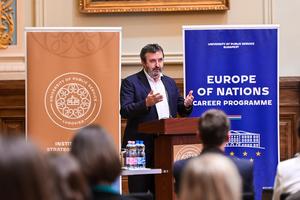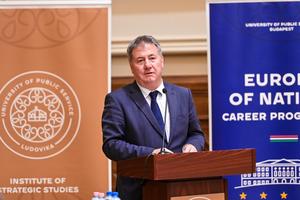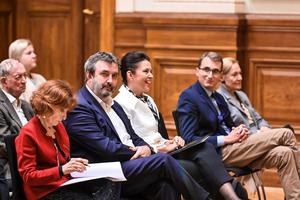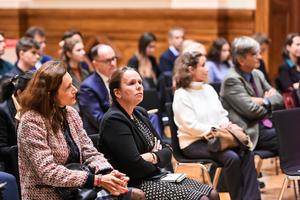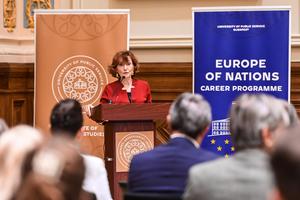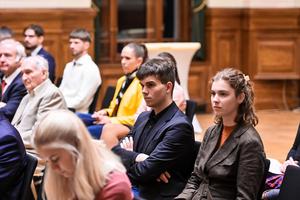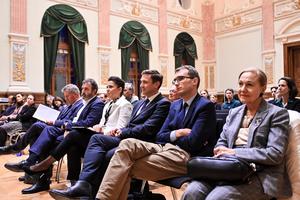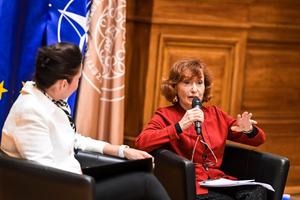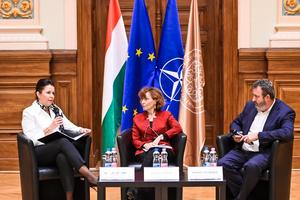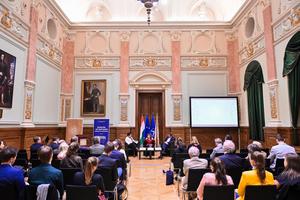On November 16, the Ludovika University of Public Service, in collaboration with the Embassy of France in Budapest, held a conference addressing the current and future challenges of European competitiveness.
In his opening speech, Gergely Prőhle, Director of the Institute of Strategic Studies at the Ludovika University of Public Service, emphasized the significance of French-Hungarian diplomatic cooperation. He stressed the importance of continually learning from the overall European experience, considering competitiveness a crucial topic both from the perspective of Hungary and Europe. Prőhle mentioned the upcoming Hungarian presidency of the Council of the European Union, making competitiveness even more relevant.
"I believe that competitiveness is even more crucial nowadays, not only due to the Hungarian presidency program of the European Union Council next year but in general. This is a very important issue from both Hungarian and European perspectives," highlighted the director. He expressed honour and pleasure at the presence of Noëlle Lenoir, former French Minister for European Affairs, at the event. Prőhle considered her the most suitable person to speak about French experiences in political and economic competitiveness, given her extensive background in politics, law, and economics.
During her lecture, Noëlle Lenoir delved into the history of the European Union, emphasizing its creation after World War II as a result of shared will. She noted that the idea emerged in post-war Western Europe since Hungary was unfortunately not a free country at that time. The primary goal was to create a political entity for self-defence, initially emphasizing cultural integration more than economic integration. The result was peace, as there were no wars for decades. However, Lenoir highlighted that today's younger generations face new challenges, which she believes are, in a sense, more difficult than those confronted by previous generations. She emphasized that young people must decide whether they want to preserve democracy, stating that protecting our values is impossible without competitiveness, economic strength, and strategic autonomy.
In his presentation, László Palkovics, former Minister of Innovation and Technology, pointed out that we currently face challenging issues and raised the question of how to cope with them. As an engineer and former minister responsible for technological innovation, he believes that the solution lies in technological innovation. Palkovics emphasized robotics and artificial intelligence, stating that we must understand and utilize this knowledge. He highlighted Hungary as a high-tech country, advocating for identifying cutting-edge technological examples that will aid in development.
During the post-lecture roundtable discussion, participants defined European integration as a response to crises by the founding countries. Both former ministers agreed that our common model is based on respect, courage, and European culture, which also entails faith in scientific progress. According to Lenoir, the first condition for competitiveness is the belief that there is always room for improvement, and young people bear significant responsibility in this regard. Participants concluded that to be competitive, joint action is necessary not only within the EU community but also in global politics and productivity. They also emphasized the continent's need to perceive itself as a scientific and technological unity.
Text: Éva Harangozó
Photo: Dénes Szilágyi
